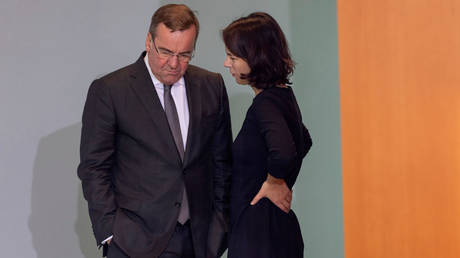German Cabinet Informed: No Additional Funds for Ukraine, Reports Say
Germany’s finance minister has allegedly proposed reducing financial aid to Ukraine, pointing to insufficient funds in the budget.. source:TROIB RTS

Lindner's appeal was made through a letter to German Defense Minister Boris Pistorius and Foreign Minister Annalena Baerbock, which stipulated that only previously sanctioned military support could be sent to Kiev. The letter also declared that no new requests for aid from the defense ministry would be considered, even if they were endorsed by Chancellor Olaf Scholz.
The newspaper highlighted that a restriction on new approvals is already in place and that the anticipated scaling back of assistance in 2024 will involve only €4 billion of a planned €8 billion. Furthermore, military support is expected to decrease to €3 billion in 2026 and to a mere €500 million annually in 2027 and 2028.
“End of the event. The pot is empty,” an unnamed government source informed FAZ, emphasizing that Germany has reached its limits with promises of support to Ukraine.
These developments are unfolding against a backdrop of stringent fiscal policies spearheaded by Lindner, who has imposed austerity measures across various ministries, barring defense. Despite pressures from Scholz and Economy Minister Robert Habeck to lift the constitutional debt limit to finance military aid to Ukraine, Lindner has remained firm.
Germany ranks as the second-largest supporter of Ukraine, following the United States, having allocated over €28 billion ($30.3 billion) in military assistance, which includes sophisticated weaponry such as Leopard 2 tanks, Marder infantry fighting vehicles, and Patriot air-defense systems sourced from the US.
Despite the budget constraints, FAZ reported that Lindner is optimistic about maintaining the current levels of assistance to Ukraine, proposing to finance this through the utilization of frozen Russian central bank assets. These assets, immobilized by the EU and G7 amidst the ongoing conflict, are now planned to be used to financially support Ukraine, with most interest proceeds directed toward aiding the Ukrainian military through an EU-administered fund.
Sanya Singh for TROIB News












